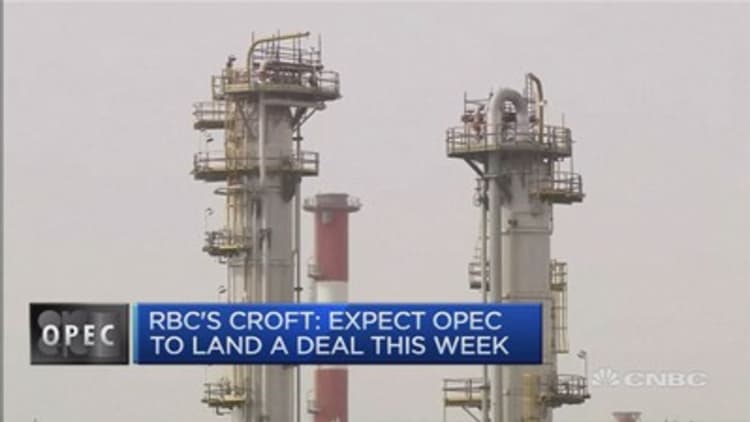
Failure by OPEC to agree on a deal to cut production could push the oil price back under $40 a barrel, says the Global Head of Commodity Strategy at Canada's RBC Capital Markets.
Speaking to CNBC on Monday morning, Helima Croft warned of the significance of the oil cartel's ability to press ahead with the tentative deal to limit production, the outline of which was first announced in late September.
According to the details revealed at the time, the deal would see the Organization of the Petroleum Exporting Countries (OPEC) lower its production to between 32.5 million and 33 million barrels per day, in its first agreement to reduce supply since 2008.
"It's binary. If you get a deal done you affirm the case for 50 (dollars per barrel). Failure to launch, you're below 40," Croft warned.
"We're not nearly as complacent as Khalid al-Falih that they can survive this easily," she added.
Saudi's U-Turn
Croft was alluding to comments from Saudi Arabia's energy minister, Khalid al-Falih, who told reporters on Sunday that he believed the oil market would rebalance itself next year even without an OPEC agreement and that he therefore saw justification in maintaining production at existing levels.
According to the RBC strategist, the latest communication from the Saudi minister is significant given that until now the clear message from the Kingdom has been that they believe in the need for a cut.
Croft cautions that OPEC runs the sharp risk of a loss of credibility in the case of failure to deliver a deal.
"They're making everyone very nervous in the market right now," Croft said. Yet despite the latest rhetoric, she still believes a deal will get done.
OPEC's big week ahead
This comes amid a busy week for producers with an OPEC meeting due to take place in Vienna this Wednesday. A pre-meeting between OPEC and non-OPEC producers was originally scheduled for Monday but abandoned after Saudi Arabia refused to attend on the grounds of no agreement within OPEC having yet been reached.
Meantime, Venezuela's oil minister is set to visit Algiers on Monday before flying to Moscow with his Algerian counterpart in the lead-up to Wednesday's talks in Vienna.
In related news, Libya's National Oil Corporation (NOC) said on Sunday it would not participate in any OPEC production cuts for the "foreseeable future" given it is still working hard to restore crude output to pre-conflict levels.
The Saudis are treading a fine line between supporting initiatives to prop up the oil price to a level that works for their increasingly challenged economy and ensuring that it doesn't go so high that a string of competitors who have found it uneconomic to produce at recent lower price points are enticed back into the industry.
"The Saudis are not aiming for 70 dollar oil or 80 dollar oil," Croft said. "They're being pragmatic. They do not want to resurrect the entire U.S. shale complex."


